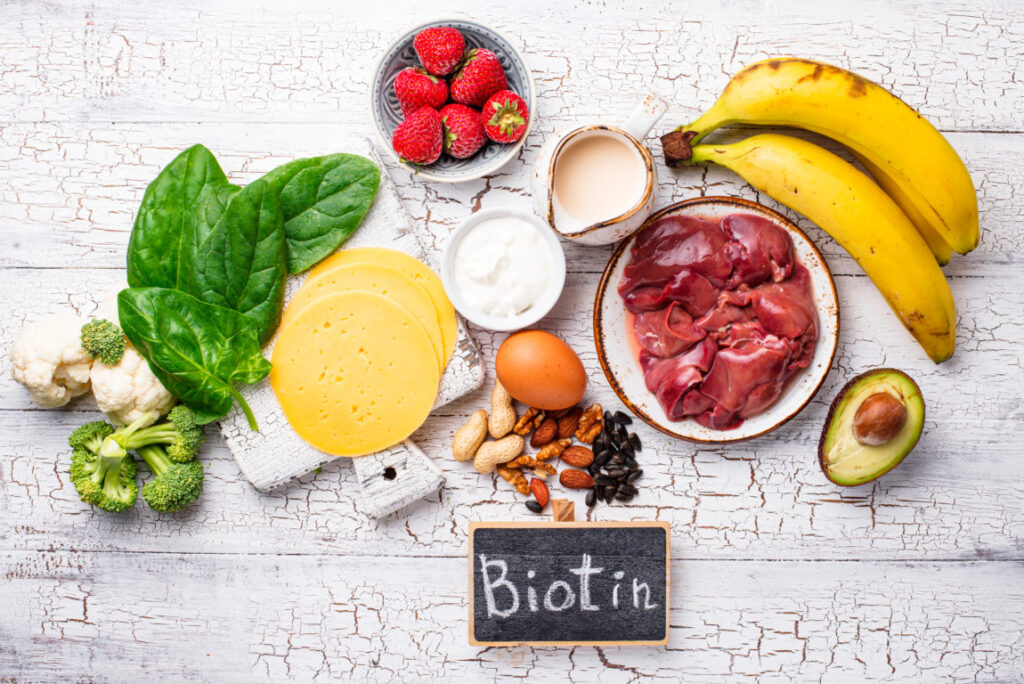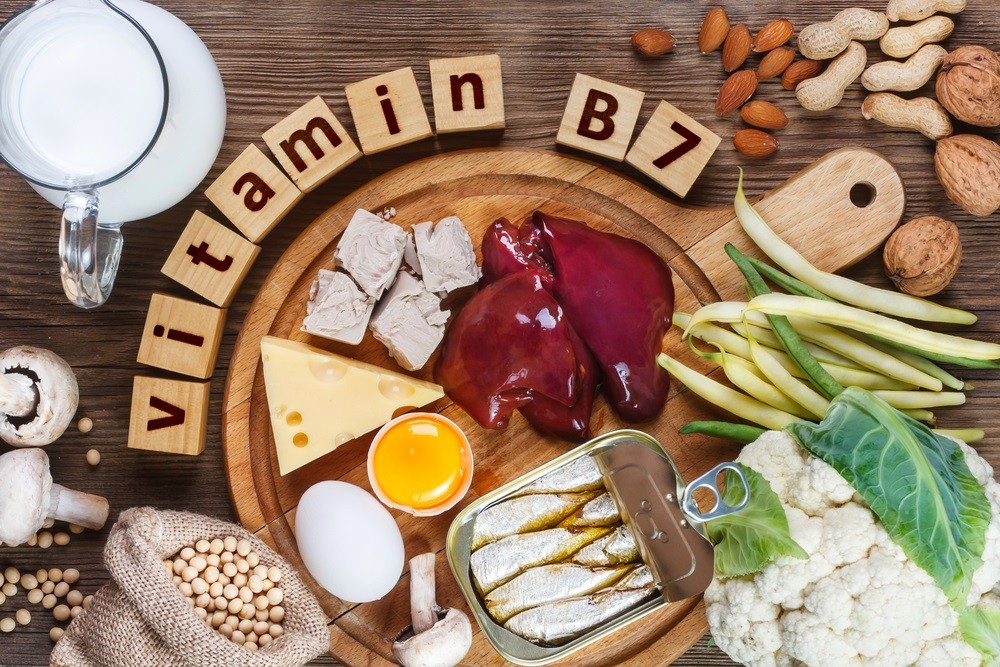When it comes to vitamins, the B-complex family is a powerhouse of nutrients that support energy, metabolism, and overall health. Among these, Vitamin B7, commonly known as biotin, stands out for its role in promoting healthy hair, skin, and nails. But biotin’s benefits go far beyond beauty—it’s also essential for metabolic processes, nervous system function, and more.
In this blog post, we’ll explore what biotin is, how it works in the body, and why it’s so important for your health.
What is Vitamin B7 (Biotin)?
Vitamin B7, or biotin, is a water-soluble vitamin that belongs to the B-complex family. It acts as a coenzyme in the body, meaning it helps enzymes carry out essential chemical reactions. Biotin is particularly important for metabolizing fats, carbohydrates, and proteins, converting them into energy that the body can use.
Biotin is also known as the “beauty vitamin” because of its role in maintaining healthy hair, skin, and nails. While it’s naturally found in a variety of foods, biotin deficiencies are rare, as the body also produces small amounts through gut bacteria.
How Does Biotin Work in the Body?
Biotin plays a key role in several metabolic processes by acting as a coenzyme for carboxylase enzymes. These enzymes are involved in:
- Energy Production: Biotin helps convert carbohydrates, fats, and proteins into glucose, the body’s primary energy source.
- Fatty Acid Synthesis: It supports the production of fatty acids, which are essential for cell membranes and overall health.
- Amino Acid Metabolism: Biotin aids in breaking down amino acids, the building blocks of proteins.
- Gene Regulation: Biotin is involved in the regulation of gene expression, influencing how genes are turned on or off.
Top Benefits of Biotin
1. Promotes Healthy Hair, Skin, and Nails
- Biotin is often associated with beauty benefits, as it supports the production of keratin, a protein that makes up hair, skin, and nails.
- Studies suggest that biotin supplementation can improve brittle nails, reduce hair loss, and enhance skin health.
2. Supports Metabolic Health
- By aiding in the metabolism of macronutrients (carbs, fats, and proteins), biotin helps maintain energy levels and supports overall metabolic function.
3. Enhances Nervous System Function
- Biotin plays a role in maintaining the health of the nervous system by supporting the production of myelin, a protective sheath around nerves.
4. Regulates Blood Sugar Levels
- Some research suggests that biotin, especially when combined with chromium, may help improve blood sugar control in people with type 2 diabetes.
5. Supports Fetal Development
- Biotin is essential during pregnancy, as it plays a role in embryonic growth and development. Pregnant women are at a higher risk of biotin deficiency.
6. Maintains Healthy Cholesterol Levels
- Biotin may help improve lipid profiles by reducing LDL (bad) cholesterol and increasing HDL (good) cholesterol.
7. Supports Thyroid and Adrenal Function
- Biotin is involved in the production of hormones that regulate the thyroid and adrenal glands, which are crucial for metabolism and stress response.
Food Sources of Biotin
Biotin is found in a variety of foods, making it easy to incorporate into your diet. Some of the best sources include:
- Egg yolks: One of the richest sources of biotin.
- Organ meats: Liver and kidney are particularly high in biotin.
- Nuts and seeds: Almonds, walnuts, and sunflower seeds.
- Fish: Salmon and sardines.
- Dairy products: Milk, cheese, and yogurt.
- Vegetables: Sweet potatoes, spinach, and broccoli.
- Whole grains: Oats, barley, and wheat bran.
Recommended Daily Intake
The recommended daily intake of biotin varies by age and life stage:
- Adults: 30 micrograms (mcg) per day.
- Pregnant women: 30-35 mcg per day.
- Breastfeeding women: 35 mcg per day.
Most people can meet their biotin needs through a balanced diet, but certain groups may benefit from supplementation.
Who May Need Biotin Supplements?
While biotin deficiencies are rare, the following groups may be at higher risk:
- Pregnant and breastfeeding women: Due to increased nutritional demands.
- People with biotinidase deficiency: A genetic disorder that affects biotin absorption.
- Individuals on long-term antibiotic therapy: Antibiotics can disrupt gut bacteria that produce biotin.
- Those with excessive alcohol consumption: Alcohol can interfere with biotin absorption.
- People with poor dietary habits: Limited intake of biotin-rich foods.
Signs of Biotin Deficiency
Biotin deficiency is uncommon, but when it occurs, symptoms may include:
- Hair loss or thinning
- Brittle nails
- Dry, irritated skin
- Fatigue
- Muscle pain
- Nervous system issues (e.g., depression, tingling in extremities)
Potential Risks and Side Effects
Biotin is generally safe, even at high doses, as it’s water-soluble and excess amounts are excreted in urine. However, there are a few considerations:
- Interference with Lab Tests: High doses of biotin can interfere with certain blood tests, such as thyroid function tests, leading to inaccurate results.
- Allergic Reactions: Some people may experience allergic reactions to biotin supplements.
- Medication Interactions: Biotin may interact with anticonvulsant medications. Consult your doctor before supplementing.

Vitamin B7 (biotin) is a vital nutrient that supports energy production, metabolic health, and the maintenance of healthy hair, skin, and nails. While deficiencies are rare, ensuring adequate biotin intake through diet or supplementation can provide numerous health benefits. Whether you’re looking to improve your appearance or support your overall well-being, biotin is a nutrient worth paying attention to.
Have you tried biotin supplements or noticed improvements in your hair, skin, or nails?
Share your experiences in the comments below! 💇♀️✨

